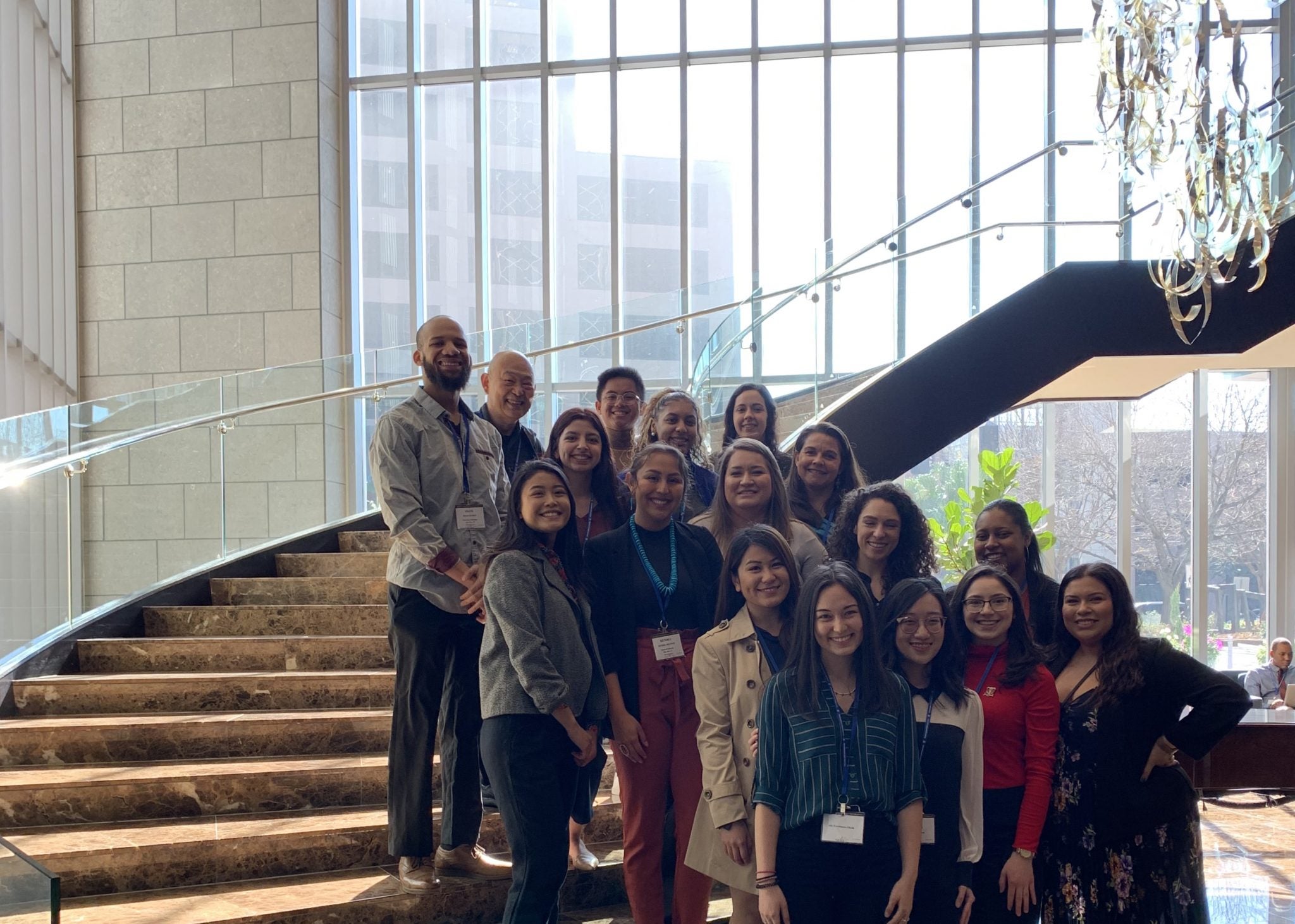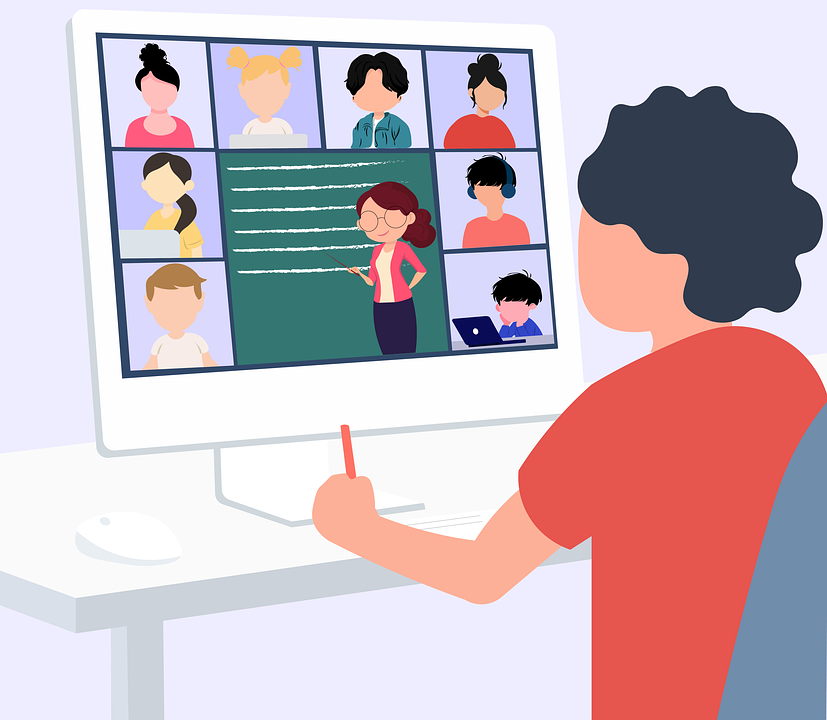
The aims of the lab are bold—to re-imagine and re-create how mainstream U.S. culture engages with teaching and learning and narratives about Indigenous Peoples. With funding from the National Science Foundation, Bill and Melinda Gates Foundation, Yidan Foundation, and Raikes Foundation, our lab takes a top-down (i.e., educator-centered vs. student-centered) approach to creating cultural change in educational settings. By changing school cultures, we aim to improve educational experiences for all students and reduce racial and social class achievement gaps.
Research Projects/Areas

Improving Engagement with Equity-Focused Professional Development Programs by Attending to Teachers’ Psychosocial Experiences
This NSF-funded project investigates how educators’ psychosocial experiences in equity-focused professional learning programs affect their engagement and outcomes. Utilizing focus groups, surveys, and randomized controlled experiments, the research aims to identify strategies for enhancing educators’ engagement with equity-focused programs and integrating equity-enhanced practices into their classrooms.

Creating change in education systems: Can leadership-level inclusion training reduce achievement gaps?
Funded by NSF, this project addresses problems of educational inequality by examining the immediate and longer-term impacts on students of having school leaders trained in culturally inclusive teaching practices.

Enhancing Cultural Toolkits and Student Mindsets
Funded by Yidan Foundation, this project is to develop a website that makes culturally inclusive and equity-focused content accessible to all educators in the US and across the world so they can engage with materials on their own timeline.

Using Pedagogical Alignment to Enhance Educators’ Adoption of Culturally Responsive Practices
This multi-study project, funded by American Institutes for Research American Institutes for Research (AIR), aims to develop and validate a scale to assess educators’ perceived pedagogical alignment (PA) with culturally responsive teaching practices and test an intervention to support educators in cultivating PA.
Our lab is also engaged in a series of Indigenous-focused research initiatives aimed at:
- Conducting multidisciplinary, humanistic research that centers the voices and experiences of Indigenous peoples.
- Building, supporting, and sustaining a multi-university pipeline for Indigenous scholar-activists.
- Translating research into action by collaborating with artists and activists who use our findings to promote and share accurate, expansive, and empowering narratives of Indigenous communities.
Learn more by visiting the RISE website!
Publications
Journal Articles
Brady, L. M., Wang, C., Griffiths, C. M., Yang, Y., Markus, H., & Fryberg, S. A., (2024). A Leadership-Level Culture Cycle Intervention Changes Teachers’ Culturally Inclusive Beliefs and Practices. Proceedings of the National Academy of Sciences. https://doi.org/10.1073/pnas.2322872121 (Link)
Brady, L. M., Fryberg, S. A., & Shoda, Y. (2018). Expanding the interpretive power of psychological science by attending to culture. Proceedings of the National Academy of Sciences, November 2018, 115(45), 11406-11413. (Link)
Eason, A. E., Brady, L. M., & Fryberg, S. A. (2018). Reclaiming representations and interrupting the cycle of bias against Native Americans. Daedalus. 147(2), 70-81. (Link)
Brady, L. M., Germano, A. L., & Fryberg, S. A. (2017). Leveraging cultural differences to promote educational equality.Current Opinion in Psychology, 18, 79-83. (Link)
Brady, L., Strong, Z. & Fryberg, S.A. (2016). The mismeasure of Native American students: Using data disaggregation to promote identity safety. Racial Heterogeneity Project. (Link)
Cvencek, D., Fryberg, S. A., Covarrubias, R., & Meltzoff, A. N. (2018). Self‐concepts, self‐esteem, and academic achievement of minority and majority north American elementary school children. Child Development, 89(4), 1099-1109. (Link)
Covarrubias, R., Herrmann, S.A., Pauker, K., & Fryberg, S.A. (2016) Explaining the student mindset response and performance link: The role of student self-views and classroom behavior. Child Development.
Covarrubias, R., Herrmann, S. & Fryberg, S. A. (2016). Affirming the interdependent self: Implications for Native American and Latino American students’ academic outcomes. Basic and Applied Social Psychology, 38, 47-57. (Link)
Covarrubias, R. & Fryberg, S. A. (2015). Movin’ on up (in college): First-generation college students’ experiences with family achievement guilt. Cultural Diversity and Ethnic Minority Psychology, 21, 420-429. (Link)
Leavitt, P. A., Covarrubias, R., Perez, Y. A., & Fryberg, S. A. (2015). “Frozen in time”: The impact of Native American media representations on identity and self-understanding. Journal of Social Issues, 71, 39-53. (Link)
Covarrubias, R. & Fryberg, S. A. (2015). The impact of self-relevant representations on school belonging for underrepresented Native American students, Cultural Diversity and Ethnic Minority Psychology, 21, 10-18. (Link)
Covarrubias, R. & Fryberg, S. A. (2014). Justifying the use of American Indian mascots: The role of attitudes in the national mascot controversy.
Covarrubias, R., Fryberg, S. A. & Dweck, C. (2014). Cultural differences in how fixed mindsets influence classroom behavior and performance for Native American and European American students.
Covarrubias, R., Fryberg, S. A., Pauker, K. & Dweck, C. (2014). Entity or incremental? How student mindsets impact classroom behaviors, academic self-views, and academic performance.
Fryberg, S. A., Eason, A., Brady, L., Leavitt, P. A. (2014). Teacher mindsets and diversity beliefs: Implications for closing the achievement gap.
Fryberg, S. A., Covarrubias, R., & Burack, J. (2013). Cultural models of education and academic performance for Native American and European American students, School Psychology International, 34, 439-452. (Link)
Fryberg, S. A., Troop-Gordon, W., D’Arrisso, A., Flores, H., Ponizovsky, V., Ranney, J. D., Mandour, T., Tootoosis, C., Robinson, S., Russo, N. & Burack, J. A. (2013). Cultural mismatch and the education of Aboriginal youth: The interplay of cultural identities and teacher ratings, Developmental Psychology, 49, 72-79. (Link)
Leavitt, P. A. & Fryberg. S. A. (2013). Into the labyrinth of social class theory. Psychological Inquiry, 24, 120-123. (Link)
Ponizovskiy, V., D’Arrisso, A., Troop-Gordon, W., Fryberg, S. A., Flores, H., Iarocci, G., Mandour, T., Robinson, S., Tootoosis, C., & Burack, J.A. (2013). “Friends and Grades”: Peer attachment and popularity in relation to school outcomes among Naskapi high school students. School Psychology International, 34, 371-386. (Link)
Romero, A. J., Edwards, L. M., Fryberg, S. A., & Orduna, M. (2013). Resilience to discrimination stress across ethnic identity stages of development. Journal of Applied Social Psychology. Doi: 10.1111/jasp.12192. (Link)
Stephens, N. M., Fryberg, S. A., Markus, H. R. & Hamadani, M. (2013). Who explains Hurricane Katrina and the Chilean Earthquake as an Act of God? The experience of extreme hardship predicts religious meaning-making, Journal of Cross-Cultural Psychology, 44, 607-619. (Link)
Fryberg, S. A. (2012). Cultural psychology as a bridge between anthropology and cognitive science, Topics in Cognitive Science, 4(3), 437-444. (Link)
Fryberg, S. A., Stephens, N. M., Covarrubias, R., Markus, H. R., Carter, E. D., Laiduc, G. A. & Salido, A. J. (2012). How the media frames the immigration debate: The critical role of location and politics. Analysis of Social Issues and Public Policy, 12, 96-112. (Link)
Plaut, V. C., Fryberg, S. A. & Martinez, E. J. (2012). Officially advocated, but institutionally undermined: Diversity rhetoric and subjective realities of junior faculty of color. International Journal on Diversity in Organizations, Communities, and Nations.
Stephens, N. M., Fryberg, S. A., Markus, H. R., Johnson, C. S., & Covarrubias, R. (2012). Unseen Disadvantage: How American Universities’ Focus on Independence Undermines the Academic Performance of First-Generation College Students. Journal of Personality and Social Psychology, 102(6), 1178-1197. (Link)
Stephens, N. M., Markus, H. R., & Fryberg, S. A. (2012). Social class disparities in health and education: Reducing inequality by applying a sociocultural self model of behavior. Psychological Review, 119, 723-744. (Link)
Townsend, S. S. M., Fryberg, S. A., Markus, H. R. & Wilkins, C. L. (2012). Being mixed: Who claims a biracial identity? Cultural Diversity and Ethnic Minority Psychology, 18, 91-96. (Link)
Stephens, N. M., Fryberg, S. A. & Markus, H. R. (2011). When choice does not equal freedom: A sociocultural analysis of agency in working-class American contexts. Social Psychological and Personality Science, 2, 33-41. (Link)
Fryberg, S. A., & Stephens, N. M. (2010). When the world is colorblind, American Indians are invisible: A diversity science approach. Psychological Inquiry, 21, 115-119. (Link)
Fryberg, S. A., Markus, H. R., Oyserman, D., & Stone, J. M. (2008). Of warrior chiefs and Indian princesses: The psychological consequences of American Indian mascots on American Indians. Basic and Applied Social Psychology, 30, 208-218. (Link)
Fryberg, S. A. & Markus, H. R. (2007). Cultural models of education in American Indian, Asian American, and European American contexts. Social Psychology of Education, 10, 213-246.(Link)
Oyserman, D., Fryberg, S. A., & Yoder, N. (2007). Identity-based motivation and health. Journal of Personality and Social Psychology, 93, 1011-1027. (Link)
Adams, G., Fryberg, S. A., Garcia, D. M., & Delgado-Torres, E. U. (2006). The psychology of engagement with Indigenous identities: A cultural perspective. Cultural Diversity and Ethnic Minority Psychology, 12, 493-508. (Link)
Fryberg, S. A. & Markus, H. R. (2003). On being American Indian: Current and possible selves. Journal of Self and Identity, 2, 325-344. (Link)
Oyserman, D., Kemmelmeier, M., Fryberg, S., Brosh, H. & Hart-Johnson, T. (2003). Racial-ethnic self-schemas [Special issue]. Social Psychology Quarterly, 66, 333-347. (Link)
Book
Fryberg, S. A. & Martínez, E. J. (2014). The truly diverse faculty: New dialogues in American higher education. Palgrave McMillan Press.
Book Chapters
Fryberg, S. A., Covarrubias, R. & Burack, J. A. (in press). The ongoing psychological colonization of North American Indigenous People: Using social psychological theories to promote social justice. In P. Hammock (Ed.), Oxford Press Handbook for Social Psychology and Social Justice.
Burack, J. A., Reynolds, A., Klassen, G., Stewart, J., & Fryberg, S. A. (in press). Cultural perspectives and influences on developmental psychopathology: Lessons from and for North American Aboriginal youths. In L. Centifanti & D. Williams (Eds.), The Wiley Blackwell Handbook of Developmental Psychopathology. Oxford: Wiley Blackwell.
Fryberg, S. A. & Leavitt, P. A. (2014). A sociocultural analysis of high-risk Native American children in schools. In (Eds.) L. Schmidt & J. A. Burack, High-risk Children in Context.
Martínez, E. J. & Fryberg, S. A. (2014). Constructed Strugglers: The Impact of Diversity Narratives on Junior Faculty of Color. In S. A. Fryberg & E. J. Martínez (Eds.) The truly diverse faculty: New dialogues in American higher education. Palgrave McMillan Press.
Fryberg, S. A. & Gerken, L. (2012). Twins separated at birth? Critical moments in cross-race mentoring relationships. K. L. Dace (Ed.). Unlikely Allies in the Academy: Women of Color and White Women in Conversation, New York, NY: Routledge Press.
Stephens, N. M., Fryberg, S. A., & Markus, H. R. (2012). It’s your choice: How the middle class model of independence disadvantages working class Americans. In S. T. Fiske & H. R. Markus (Eds.). Situated Inequality: Face-to-face Class Divides, New York, N.Y.: Russell Sage Foundation.
Fryberg, S. A. (2010). Constructing junior faculty of color as strugglers. In D. Little & S. P. Mohanty (Eds.) The Future of Diversity: Academic Leaders Reflect on American Higher Education. Palgrave McMillan Press.
Fryberg, S. A. & Watts, A (2010). We’re honoring you dude: Myths, mascots, and American Indians. In H. R. Markus & P. M. Moya (Eds.). Doing Race: 21 Essays for the 21st Century. New York: W.W. Norton & Co.
Fryberg S. A. & Townsend, S. M. (2008). The psychology of invisibility. In G. Adams, M. Biernat, N. Branscombe, C. Crandall, & L. Wrightsman (Eds.). Commemorating Brown: The Social Psychology of Racism and Discrimination. Washington DC: American Psychological Association.
Oyserman, D. & Fryberg, S. (2006). The possible selves of diverse adolescents: Content and function across gender, race and national origin. In C. Dunkel & J. Kerpelman (Eds.), Possible selves: Theory, research, and application. Huntington, NY: Nova.
Opinion-Editorial
Fryberg, S.A. (December, 2014). A fragile peace in the aftermath of the Marysville Pilchuck shooting. Seattle Times, http://www.seattletimes.com/opinion/guest-a-fragile-peace-in-the-aftermath-of-the-marysville-pilchuck-shooting/
Bang, M., Brady, L.M., Fryberg, S.A., & Murphy, M.C. (2018). Response: The value of ‘peer- teaching’. EdWeek, http://blogs.edweek.org/teachers/classroom_qa_with_larry_ferlazzo/2018/11/response_the_value_of_peer_teaching.html
Brady, L.M., Fryberg, S.A., & Shoda, Y. (2019). The importance of cultural context: Expanding interpretive power in psychological science. APS Observer, https://www.psychologicalscience.org/observer/the-importance-of-cultural-context
